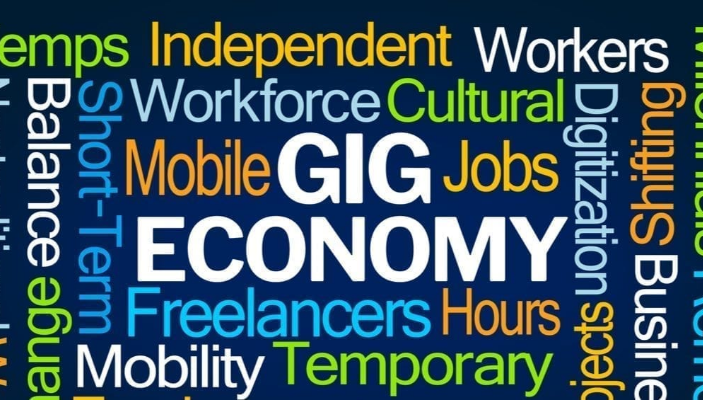Inflation quietly erodes the value of your money. Whether you’re saving for a home, retirement, or just trying to maintain your everyday lifestyle, rising prices can threaten your financial goals.
This article gives you original, actionable steps that real people can use to keep their money safe and resilient — especially in the 2025 economy. We’ll explore practical options, explain how inflation affects your savings, and help you take charge of your financial well-being.
What Is Inflation and Why It Matters in 2025
Inflation means the general increase in prices over time. As inflation rises, your money buys less. For example, if inflation is at 6%, then something that cost $100 last year now costs $106 — even though your income may not have changed.
In 2025, many countries are facing elevated inflation due to supply chain shifts, currency devaluation, labor shortages, and ongoing energy price volatility. Whether you live in the U.S., Europe, or a developing economy, inflation is likely impacting you directly.
How It Affects Everyday People
- Groceries cost more
- Rent and home prices go up
- Savings lose value
- Investment returns may not keep pace
- Retirees face increased budget strain
So how can you protect your money — not just theoretically, but practically — in a way that makes sense for your life?
Step 1: Keep Your Budget Flexible and Updated
A strong defense starts with awareness. If you haven’t looked at your spending in the last 90 days, now’s the time.
How to Start
- Use an app like YNAB, PocketGuard, or even Google Sheets.
- List your essential costs: housing, food, utilities, transport.
- Label everything else: subscriptions, hobbies, discretionary spending.
- Update prices monthly, especially recurring items like groceries and utilities.
Small increases add up fast. Tracking these shifts can alert you to inflation’s impact on your wallet — before it becomes a crisis.
Step 2: Save Strategically — Not Just in Cash
Holding too much cash in a regular savings account during inflation is like pouring water into a leaky bucket.
What to Do Instead
- Emergency fund: Keep 3–6 months’ expenses in a high-yield savings account. Look for banks offering APY above inflation (currently ~4.5%+ in 2025).
- Use Treasury Inflation-Protected Securities (TIPS): These are U.S. government bonds that adjust with inflation.
- Explore Series I Bonds: Ideal for long-term inflation protection. They currently offer rates that can beat traditional savings accounts.
This balance gives you liquidity for short-term needs and purchasing power protection for the future.
Step 3: Focus on Assets That Typically Grow with Inflation
Some investments can rise along with — or even faster than — inflation. These can preserve (and even grow) your net worth.
Real Assets That Hold Value
- Real estate: Rental income often increases over time. Property prices may outpace inflation in urban or growing regions.
- Commodities: Precious metals like gold and silver, or commodities like oil, often rise when currency loses value.
- Farmland or timberland: Historically steady with low correlation to stocks or inflation.
Equities: The Right Kind
Stocks can be inflation-resilient — but not all are equal. Focus on:
- Dividend-paying stocks
- Consumer staples companies
- Healthcare and utilities sectors
- Energy stocks and ETFs
You’re aiming for companies that can pass rising costs to consumers without losing demand.
Step 4: Don’t Ignore International and Digital Options
Diversification isn’t just about having many investments — it’s about having the right mix. When inflation hits one economy, another may offer protection.
Currency and Geographic Diversification
- Invest in international index funds: Exposure to economies with stronger currencies or lower inflation.
- Hold some assets in foreign-denominated accounts (if accessible and legal in your country).
- Explore crypto, but cautiously: Bitcoin is seen by some as a hedge, though it remains highly volatile and should not be your core strategy.
Balance traditional investing with modern tools — but keep your risk tolerance in check.
Step 5: Maximize Income Streams to Stay Ahead
When costs go up, static income becomes dangerous. Protect your purchasing power by creating flexibility in how you earn.
Smart Income Strategies in 2025
- Remote freelance work: Sites like Upwork, Fiverr, and Contra offer global access to paid gigs.
- High-demand side hustles: From print-on-demand shops to niche newsletters, creators are thriving.
- License your skills: Create paid courses, templates, or coaching sessions.
- Invest in income-producing assets: Dividend stocks, REITs, or peer-to-peer lending platforms.
Earning more gives you more room to save and invest — which shields you from inflation’s impact over time.
Step 6: Review Insurance and Fixed Contracts
Inflation doesn’t just raise food and rent — it can also make your insurance and service plans inadequate.
Where to Check
- Homeowner’s or renter’s insurance: Is your coverage amount adjusted for rising replacement costs?
- Health insurance: Have your co-pays or deductibles changed?
- Service contracts: Lock in rates where possible, especially for internet, phone, or cloud services.
Even small tweaks here can prevent major out-of-pocket costs later.
Step 7: Cut Inflation-Boosted Expenses Smartly
You don’t have to slash your quality of life — but you can make thoughtful reductions in areas where inflation bites hardest.
Cut Costs Without Cutting Joy
- Meal plan and bulk buy: Prices are rising fastest in meat, dairy, and packaged foods.
- Use transit alternatives: Car maintenance, fuel, and insurance are inflation-heavy.
- Review streaming and subscriptions: Many people forget what they signed up for.
Look for recurring monthly expenses and renegotiate or cut what no longer serves you.
Step 8: Keep Learning and Stay Informed
Inflation isn’t static. It’s affected by economic policy, supply chains, wars, labor markets, and consumer behavior.
Stay Ahead by Staying Informed
- Follow credible financial newsletters or creators (e.g., Morning Brew, The Daily Upside).
- Listen to economic podcasts (e.g., Planet Money, Odd Lots).
- Track inflation indicators from trusted sources like the Bureau of Labor Statistics or World Bank.
You don’t need to be an economist — just a curious, aware participant in your own financial future.
Step 9: Mindset Matters — Focus on Control
Inflation can feel overwhelming. But focusing on what you can actually control keeps you confident and in charge.
Focus Areas Within Your Control
- How you spend
- How you earn
- Where you invest
- What you learn
- Who you trust
This mindset shift turns fear into focus — and prepares you not just to survive inflation, but to come through stronger.
Conclusion: Resilience Over Reaction
Protecting your money from inflation in 2025 doesn’t mean making wild changes. It means being intentional, steady, and well-informed.
Start with your daily finances. Add strategic savings tools. Use investments that thrive in rising-price environments. Expand your income streams. And most importantly, stay flexible.
Inflation may be a challenge — but you have more tools than ever to respond with confidence.
✅ FAQs
1. Is it safe to hold cash during inflation?
Only to a limited degree. Keep 3–6 months’ expenses in a high-yield savings account, but move excess funds into inflation-resistant assets like TIPS, I Bonds, or stocks.
2. Which investments are good during inflation?
Dividend stocks, real estate, commodities, and TIPS are traditionally seen as strong inflation hedges.
3. Can cryptocurrency protect against inflation?
Cryptocurrency is speculative. While some treat it as a digital store of value, it’s highly volatile and should only be a small part of a diversified strategy.
4. How does inflation affect retirement planning?
It reduces your future purchasing power. To adjust, invest in assets that outpace inflation and periodically review your budget and income sources.
5. Should I change my budget every month?
Yes. During periods of rising inflation, reviewing your budget monthly helps you catch cost increases early and adjust accordingly.







